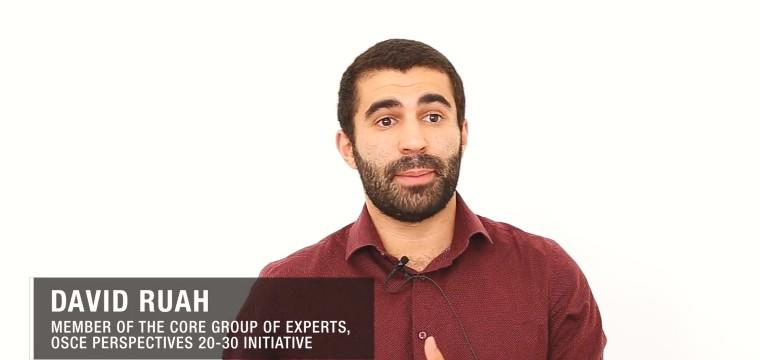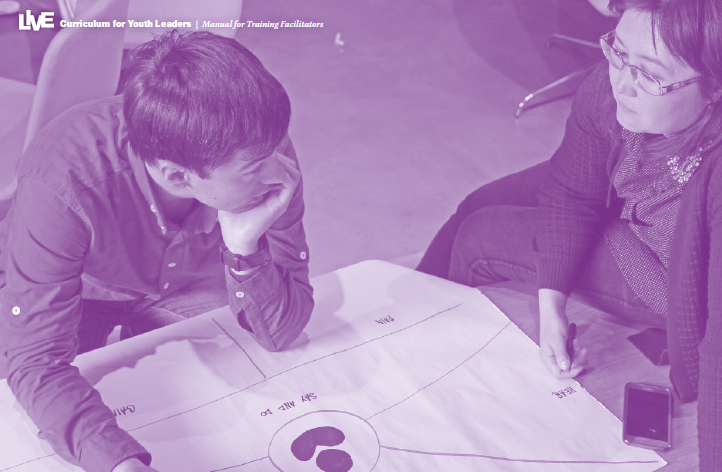-
Our work
-
Fields of work
- Arms control
- Border management
- Combating trafficking in human beings
- Conflict prevention and resolution
- Countering terrorism
- Cyber/ICT Security
- Democratization
- Economic activities
- Education
- Elections
- Environmental activities
- Gender equality
- Good governance
- Human rights
- Media freedom and development
- Migration
- National minority issues
- Policing
- Reform and co-operation in the security sector
- Roma and Sinti
- Rule of law
- Tolerance and non-discrimination
- Youth
- Field operations
- Projects
-
Meetings and conferences
- Summit meetings
- Review Conferences
- Ministerial Council meetings
- Plenary meetings of the Permanent Council
- Plenary Meetings of the Forum for Security Co-operation
- Security Review Conferences
- Annual Implementation Assessment Meetings
- Economic and Environmental Forum
- Economic and Environmental Dimension Implementation Meetings
- Human rights meetings
- Media conferences
- Cyber/ICT security conferences
- Conference of the Alliance against Trafficking in Persons
- Gender equality conferences
- Annual OSCE Mediterranean conferences
- Annual OSCE Asian conferences
- Partnerships
-
Fields of work
-
Countries
- All
-
Participating States
- Albania
- Andorra
- Armenia
- Austria
- Azerbaijan
- Belgium
- Belarus
- Bosnia and Herzegovina
- Bulgaria
- Canada
- Croatia
- Cyprus
- Czechia
- Denmark
- Estonia
- Finland
- France
- Georgia
- Germany
- Greece
- Holy See
- Hungary
- Iceland
- Ireland
- Italy
- Kazakhstan
- Kyrgyzstan
- Latvia
- Liechtenstein
- Lithuania
- Luxembourg
- Malta
- Moldova
- Monaco
- Mongolia
- Montenegro
- The Netherlands
- North Macedonia
- Norway
- Poland
- Portugal
- Romania
- Russian Federation
- San Marino
- Serbia
- Slovakia
- Slovenia
- Spain
- Sweden
- Switzerland – OSCE Chairpersonship 2026
- Tajikistan
- Türkiye
- Turkmenistan
- Ukraine
- United Kingdom
- United States of America
- Uzbekistan
- Asian Partners for Co-operation
- Mediterranean Partners for Co-operation
-
Structures and institutions
- Chairpersonship
-
Secretariat
- Secretary General
- Office of the Secretary General
- Conflict Prevention Centre
- Transnational Threats Department
- Office of the Special Representative and Co-ordinator for Combating Trafficking in Human Beings
- Office of the Co-ordinator of OSCE Economic and Environmental Activities
- Gender Issues Programme
- Opportunities for Youth
- Department of Human Resources
- Department of Management and Finance
- Office of Internal Oversight
- Documentation Centre in Prague
- Institutions
-
Field operations
- Presence in Albania
- Centre in Ashgabat
- Programme Office in Astana
- Programme Office in Bishkek
- Mission to Bosnia and Herzegovina
- Programme Office in Dushanbe
- Mission in Kosovo
- Mission to Moldova
- Mission to Montenegro
- Mission to Serbia
- Mission to Skopje
- Project Co-ordinator in Uzbekistan
- Closed field activities
- Parliamentary Assembly
- Court of Conciliation and Arbitration
- Organizational structure
- About us

Story
Critical thinking as a tool against violent extremism
- Date:
- Source:
- OSCE Secretariat
- Fields of work:
- Countering terrorism, Youth
Social media is bursting with millions of ideas and thoughts shared every second of every day worldwide. Knowing how to critically evaluate and understand where this information is coming from has become an important part of addressing groups with violent extremist and terrorist agendas.
These groups use social media as a way to spread divisive propaganda and draw in sympathizers and new recruits. The threat of their activities has only amplified during the COVID-19 pandemic. With social restrictions imposed to contain the virus, reliance on social media and the internet has grown. This has opened the door for groups with violent extremist and terrorist agendas to further exploit insecurities while also undermining trust in government responses for dealing with this pandemic.
To help offset these extremist and terrorist agendas on social media, civil society practitioners, like David Ruah from Portugal, are taking action to change the narrative by promoting messages of mutual understanding, tolerance and diversity, and equipping people with knowledge to protect themselves. Such action helps to reduce the appeal of violent extremist messaging and build community resilience to its influence and dissemination. “We all have a duty to do something to prevent violent extremism and to contribute to a democratic society that effectively protects human rights,” David says.
Motivated by his family’s Jewish origin, David began working on social injustice issues as a response to past violent acts such as the Inquisition and the Holocaust. He helped launch ‘Humans of Tomorrow’ in 2016 and ‘2Think’ in 2018, two social media campaigns designed to address hate speech and violent extremism.
The ’Humans of Tomorrow’ campaign grew out of a youth innovation lab by the Institute for Strategic Dialogue in London. The aim of the campaign is to share resources and positive narratives on Facebook to create a more inclusive and open dialogue between people. David places particular importance on personal stories, which, he says, allow people to develop empathy and generate public debate.
‘2Think’ is a video campaign on the 2ThinkCritically Facebook page that explains how to recognize common fallacies in arguments used to influence people’s thinking. The aim is to help people, particularly young people, learn how to evaluate information, news and stories they consume, including on social media, to protect themselves from manipulation and possible recruitment by violent extremists.
Media and digital literacy education
Campaigns like ‘Humans of Tomorrow’ and ‘2Think’ are examples of civil society efforts to increase media literacy, particularly among young people. At its core, media literacy is the ability to assess information and its sources, credibility and value. This essential skill helps people effectively deal with news, information, and narratives that could potentially divide societies and promote violent extremist ideologies.
Training courses through the OSCE’s Leaders against Intolerance and Violent Extremism (LIVE) Initiative help participants refine their skills on media and digital literacy and the use of social media. Participants learn about the roles of media, social media and narratives related to violent extremism and its prevention, as well as how to craft messages for their communities and identify credible messengers. They also use the training to design original, impactful and relevant initiatives for responding to factors contributing to violent extremism in their communities.
Watch the interview with David Ruah here:
Open source educational materials on media and information literacy can be found on UNESCO’s Online MIL and Intercultural Dialogue Courses website. UNESCO has also developed a manual for educators about violent extremism: Teacher’s Guide on the Prevention of Violent Extremism.
The interview with David Ruah was filmed on the margins of the OSCE Perspectives 20-30 Initiative, which aims to integrate youth voices in the OSCE’s efforts to promote peace, stability and comprehensive security. The Initiative also provides a platform for young women and men to discuss their vision with decision-makers for building a safer future for the OSCE area in 2030 and beyond.
OSCE Impact
Discover more stories about how the OSCE improves lives.


